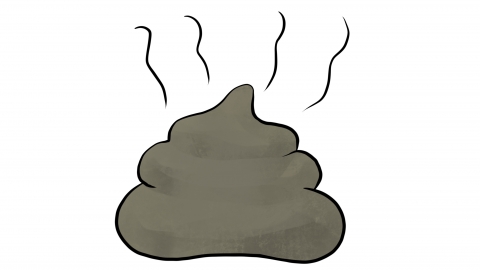What causes the color of stool to turn black?
In general, black stool may be caused by dietary factors, medication effects, bleeding from ruptured esophageal varices, gastric ulcers, duodenal ulcers, and other reasons. Symptomatic management through general treatment and medication might be needed. If discomfort occurs, it is recommended to seek timely medical attention and undergo appropriate treatment under a doctor's guidance. Detailed analysis is as follows:

1. Dietary factors
Consumption of large amounts of dark-colored foods or animal blood products may cause the stool to turn black. For example, pigments or iron in foods such as dark chocolate and spinach may oxidize in the intestines and form iron sulfide, causing the stool color to darken or turn black. Usually, no special treatment is required. Adjusting the diet, reducing intake of dark-colored foods and animal blood products, will gradually restore the normal color of the stool.
2. Medication effects
Taking certain medications, such as iron supplements, bismuth preparations, aspirin, etc., may lead to black stools because these drugs combine with sulfides in the intestine to form black substances or cause gastrointestinal bleeding. This may be accompanied by other side effects of the medication, such as nausea, vomiting, abdominal pain, and so on. It is recommended to switch to other medications or discontinue the current medication under a doctor's guidance.
3. Bleeding from ruptured esophageal varices
After bleeding from ruptured esophageal varices occurs, under the action of gastric acid, hemoglobin in the blood is destroyed and converted into black ferrous sulfide, which causes the stool to turn black. Symptoms such as hematemesis and chest pain may also be present. It is recommended to follow medical advice and use medications such as octreotide acetate injection, somatostatin for injection, nitroglycerin injection, etc., to alleviate symptoms.
4. Gastric ulcer
After bleeding from a gastric ulcer, under the action of gastric acid, hemoglobin in the blood is destroyed and converted into black ferrous sulfide, which causes the stool to turn black. Symptoms such as upper abdominal pain, hunger discomfort, acid regurgitation, etc., may also be present. It is recommended to follow medical advice and use medications such as omeprazole enteric-coated tablets, lansoprazole tablets, pantoprazole enteric-coated tablets, etc., for treatment.
5. Duodenal ulcer
After bleeding from a duodenal ulcer, under the action of gastric acid, hemoglobin in the blood is destroyed and converted into black ferrous sulfide, which causes the stool to turn black. Symptoms such as upper abdominal pain, nocturnal pain, acid regurgitation, etc., may also be present. It is recommended to follow medical advice and use medications such as lansoprazole tablets, colloidal pectin bismuth capsules, bismuth potassium citrate tablets, etc., to alleviate symptoms.
It is recommended to maintain a light diet in daily life, avoid spicy, greasy, and irritating foods, and consume more fresh fruits and vegetables rich in vitamins, such as carrots, oranges, etc., which help maintain good health.




